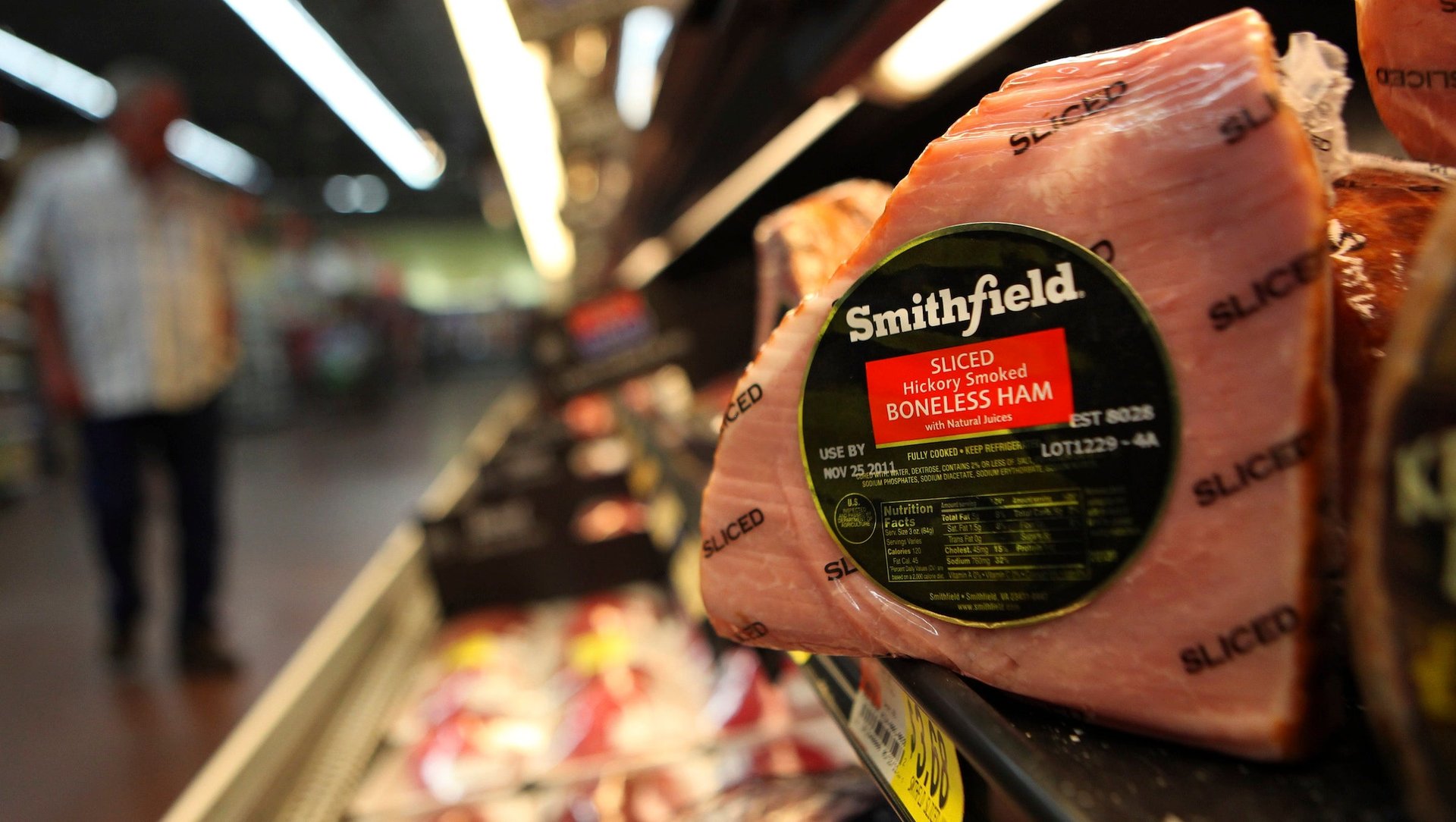Will other foreign companies trump Shuanghui International’s bid for Smithfield Foods?
The hand wringing over Shuanghui International’s purchase of US pork company Smithfield Foods began as soon as the deal was announced. The prospect of a Chinese company owning America’s largest producer of bacon, sausage and ham has stirred food safety activists, national security experts and politicians.


The hand wringing over Shuanghui International’s purchase of US pork company Smithfield Foods began as soon as the deal was announced. The prospect of a Chinese company owning America’s largest producer of bacon, sausage and ham has stirred food safety activists, national security experts and politicians.
But the drama may have only just begun. There could be other suitors for Smithfield. Bloomberg reported that Charoen Pokphand Foods of Thailand and JBS SA of Brazil were also interested in the American company. Without an obvious US buyer, it seems Smithfield is destined to land in foreign hands. The question is do we care whose?
Brazil’s JBS, the world’s largest meat producer, seems fairly friendly. Its expansion into the US hasn’t provoked major worries in the past. In 2007, it acquired US beef and pork processor Swift Foods, followed by a deal for Smithfield Beef from Smithfield Foods. In 2009, it bought a majority stake in chicken producer Pilgrim’s Pride. And in 2010, it considered one of its most ambitious deals in the US: buying Sara Lee, the maker of Jimmy Dean, Hillshire Farm and Ball Park products.
Any foreign deal for Smithfield Foods will have to go through the Committee on Foreign Investment in the US (CFIUS), which examines deals for national security concerns. Some CFIUS experts think a Shuanghui takeover of Smithfield would go through without major snags. But at this stage, perception is as important as reality.
For instance, JBS could stoke fears about the biggest Chinese takeover of a US company to get ahead. Earlier this year, internet surfers were horrified by viral photographs of 16,000 dead pigs floating in the Hangpu River, which threatened to contaminate the water supply in Shanghai.
Both Shuanghui and Smithfield are acutely aware of the concerns. That’s why the deal emphasizes exporting US products to China, not the other way around. Smithfield executives have also said potential foreign buyers have agreed to keep the company’s US headquarters, employees and CEO Larry Pope.
A successful Shuanghui deal could open the door to other Chinese food companies with global ambitions. One prominent example is China’s Bright Food, which has struggled to acquire foreign companies in recent years. In 2011, the company dropped out of talks to acquire US nutritional retailer GNC. In 2010, it ended negotiations to acquire United Biscuits of the UK. But last year, Bright Foods managed to get its purchase of British cereal company Weetabix Food over the fence. Perhaps a sign of deals to come.